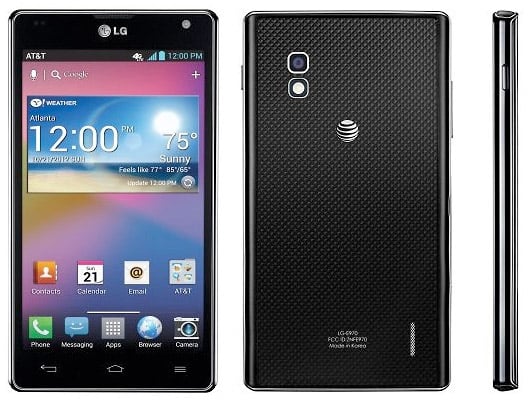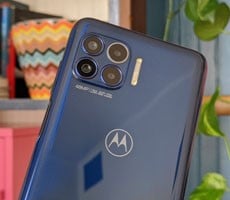LG Optimus G Android Smartphone Review
Introduction and Specifications
Although it's already flooded with a slew of excellent devices, the smartphone market has shown no signs of letting up. While Samsung and Apple are dominating the charts in terms of global hardware market share, Android's continued rise in the smartphone space has also been bolstered by devices from companies like HTC, Sony, and LG. In fact, LG was the company chosen to produce the most recently released Nexus-branded smartphone, the powerful Nexus 4.

The Optimus G that we're reviewing here has a lot in common with the Nexus 4, and it's impossible to evaluate this handset without drawing direct comparisons to its Google branded sibling. Before we break down the specifics, let's look at the internals found in one of AT&T's most powerful smartphones yet.
If you weren't aware, the Optimus G was the first commercially available smartphone to use Qualcomm's Snapdragon S4 Pro SoC (APQ8064) paired with an LTE radio. That's a 1.5GHz quad-core chip, inside a smartphone. That's about as cutting edge as it gets right now, and when you consider the beefy 2GB of RAM and Adreno 320 GPU, it's pretty clear that the bar is set high.
From the onset, however, we're somewhat bothered by the stock operating system. Android 4.0.4 is now two full point releases behind the latest iterations of Android; Android 4.2 Jelly Bean is already available on select devices. But will the omission of things like Google Now and things like LG's own Android skin put a damper on those powerful technical specifications? That's what we plan to find out in the pages ahead.

The Optimus G that we're reviewing here has a lot in common with the Nexus 4, and it's impossible to evaluate this handset without drawing direct comparisons to its Google branded sibling. Before we break down the specifics, let's look at the internals found in one of AT&T's most powerful smartphones yet.
|
| Network |
AT&T and Sprint available |
| Bands/Modes |
850/1900/2100 MHz (3G-UMTS); 850/900/1800/1900 MHz (GSM/GPRS/EDGE); 4G HSPA+; HSPA+ with enhanced backhaul; Band 4 and 17 (4G LTE) |
| OS |
Android 4.0.4 (Ice Cream Sandwich) |
| Display |
4.7-inch 1280x768 WXGA True HD IPS Plus scratch-resistant Corning Gorilla Glass 2 |
| Processor |
Quad core 1.5GHz Qualcomm APQ8064 Snapdragon S4 Pro processor |
| Memory |
2 GB of RAM 16 GB internal memory microSD expansion slot (16 GB included) |
| Usage Time |
10 Hours Reported Talk Time; 13.5 Hours Standby |
| Dimensions |
5.15 x 2.82 x 0.33 inches |
| Weight |
5.19 ounces |
| Battery |
2100mAh Battery (Sealed) |
| Connectivity |
Bluetooth 4.0, 802.11 a/b/g/n, Mobile Hotspot (up to 8 connections), NFC, microUSB, MHL, DLNA 1.5, aGPS, 3.5mm headset jack, |
| Camera |
8 MP rear facing camera with LED flash 1.3 MP (720p) front facing camera |
| Price |
$199.99 with 2-year contract ($549.99 off-contract) |
If you weren't aware, the Optimus G was the first commercially available smartphone to use Qualcomm's Snapdragon S4 Pro SoC (APQ8064) paired with an LTE radio. That's a 1.5GHz quad-core chip, inside a smartphone. That's about as cutting edge as it gets right now, and when you consider the beefy 2GB of RAM and Adreno 320 GPU, it's pretty clear that the bar is set high.
From the onset, however, we're somewhat bothered by the stock operating system. Android 4.0.4 is now two full point releases behind the latest iterations of Android; Android 4.2 Jelly Bean is already available on select devices. But will the omission of things like Google Now and things like LG's own Android skin put a damper on those powerful technical specifications? That's what we plan to find out in the pages ahead.






